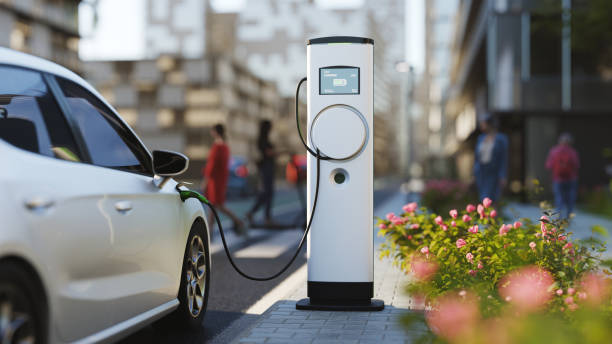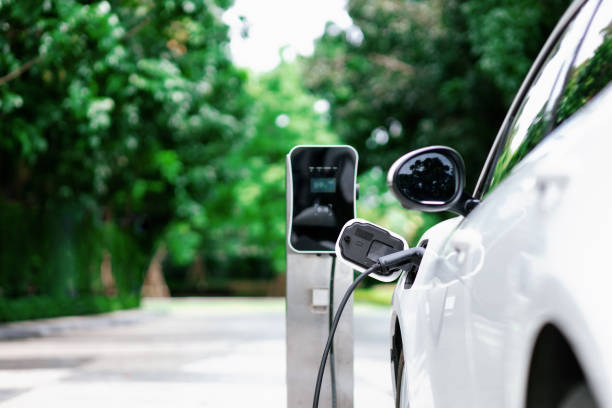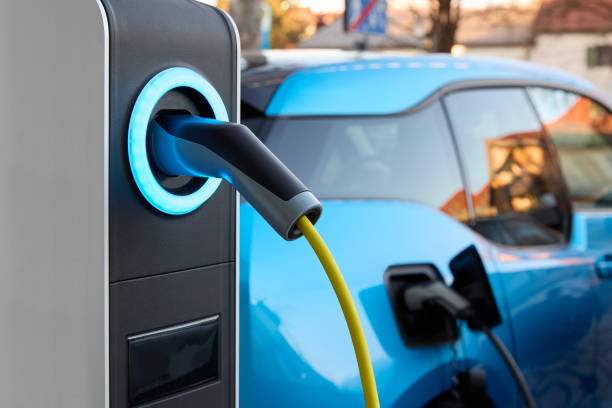Table of Contents
The transportation sector is undergoing a significant transformation, driven by the growing adoption of electric vehicles (EVs). As concerns about climate change, air pollution, and the depletion of fossil fuels intensify, EVs are emerging as a sustainable alternative to traditional internal combustion engine (ICE) vehicles. With advancements in battery technology, government incentives, and a shift in consumer preferences, electric vehicles are poised to play a central role in the future of transportation. This article explores the rise of EVs, the factors driving their adoption, and the challenges and opportunities that lie ahead.

The Rise of Electric Vehicles
Electric vehicles are not a new concept. The first electric cars were developed in the 19th century, but they were quickly overshadowed by gasoline-powered vehicles due to the latter’s longer range and lower costs. However, with the advent of modern battery technology and increasing environmental awareness, EVs have made a strong comeback in recent years.
One of the most significant factors contributing to the rise of EVs is the advancement in battery technology. Lithium-ion batteries, which power most modern EVs, have become more efficient, lighter, and cheaper over time. These improvements have led to longer driving ranges and shorter charging times, making electric vehicles more practical for everyday use.
In addition to technological advancements, government policies and incentives have played a crucial role in promoting the adoption of electric vehicles. Many countries have implemented subsidies, tax breaks, and rebates for EV buyers, making them more affordable. Some governments have also introduced regulations aimed at phasing out the sale of new gasoline and diesel vehicles in the coming decades, further accelerating the shift towards electric transportation.
Environmental Benefits and Sustainability
One of the primary reasons for the growing popularity of electric vehicles is their environmental benefits. Unlike ICE vehicles, EVs produce zero tailpipe emissions, which significantly reduces air pollution and improves air quality, particularly in urban areas. This is especially important given the health risks associated with poor air quality, such as respiratory and cardiovascular diseases.
Moreover, electric vehicles have the potential to reduce greenhouse gas emissions, which are a major contributor to climate change. When powered by renewable energy sources, such as solar or wind, EVs can operate with minimal carbon footprint, making them a key component in the transition to a more sustainable transportation system.
The shift to electric vehicles also has the potential to reduce the demand for fossil fuels, which are finite and environmentally damaging. By relying on electricity as a fuel source, EVs can help decrease the world’s dependence on oil and reduce the geopolitical tensions associated with oil production and distribution.

Economic Impact and Industry Transformation
The rise of electric vehicles is not only reshaping the transportation sector but also having a profound impact on the global economy. The automotive industry, one of the largest and most influential sectors, is undergoing a significant transformation as automakers shift their focus from traditional ICE vehicles to electric models.
This transition is driving innovation and competition within the industry, leading to the development of new technologies and business models. Established automakers are investing heavily in EV research and development, while new entrants, including startups and tech companies, are entering the market with innovative solutions. This competition is driving down costs and increasing the variety of EV options available to consumers.
The shift to electric vehicles is also creating new opportunities in related industries, such as battery manufacturing, charging infrastructure, and renewable energy. The demand for batteries is expected to surge as EV adoption grows, leading to increased investment in battery production and recycling. Similarly, the expansion of charging networks is critical to supporting the widespread use of electric vehicles, creating opportunities for companies involved in infrastructure development.
However, the transition to electric vehicles also presents challenges, particularly for industries and regions that are heavily dependent on fossil fuels. The decline in demand for oil could lead to job losses and economic disruptions in these areas. As such, governments and businesses must work together to ensure a just and equitable transition to a sustainable transportation system.

Challenges and Barriers to Adoption
Despite the many advantages of electric vehicles, several challenges remain that could hinder their widespread adoption. One of the most significant barriers is the cost of EVs, which are still generally more expensive than their ICE counterparts. Although prices are decreasing, the upfront cost of electric vehicles can be a deterrent for many consumers, especially in regions where government incentives are limited.
Another challenge is the availability and accessibility of charging infrastructure. While urban areas are increasingly equipped with public charging stations, rural and remote areas often lack sufficient infrastructure. Range anxiety, or the fear of running out of battery power before reaching a charging station, remains a concern for potential EV buyers.
Battery technology, while improving, also presents challenges. The production of lithium-ion batteries requires the extraction of raw materials like lithium, cobalt, and nickel, which can have environmental and ethical implications. Additionally, battery disposal and recycling are critical issues that need to be addressed to ensure the sustainability of EVs.
The Road Ahead
The future of transportation is undoubtedly electric, with EVs expected to dominate the automotive market in the coming decades. As technology continues to advance, electric vehicles will become more affordable, practical, and accessible, further driving their adoption.
Governments, businesses, and consumers all have a role to play in supporting the transition to electric vehicles. Continued investment in research and development, charging infrastructure, and renewable energy will be essential to overcoming the challenges and maximizing the benefits of EVs.
As the world moves towards a more sustainable future, electric vehicles will play a crucial role in reducing emissions, improving air quality, and decreasing reliance on fossil fuels. The shift to electric transportation is not just a technological evolution; it is a necessary step towards a cleaner, greener, and more sustainable world.

